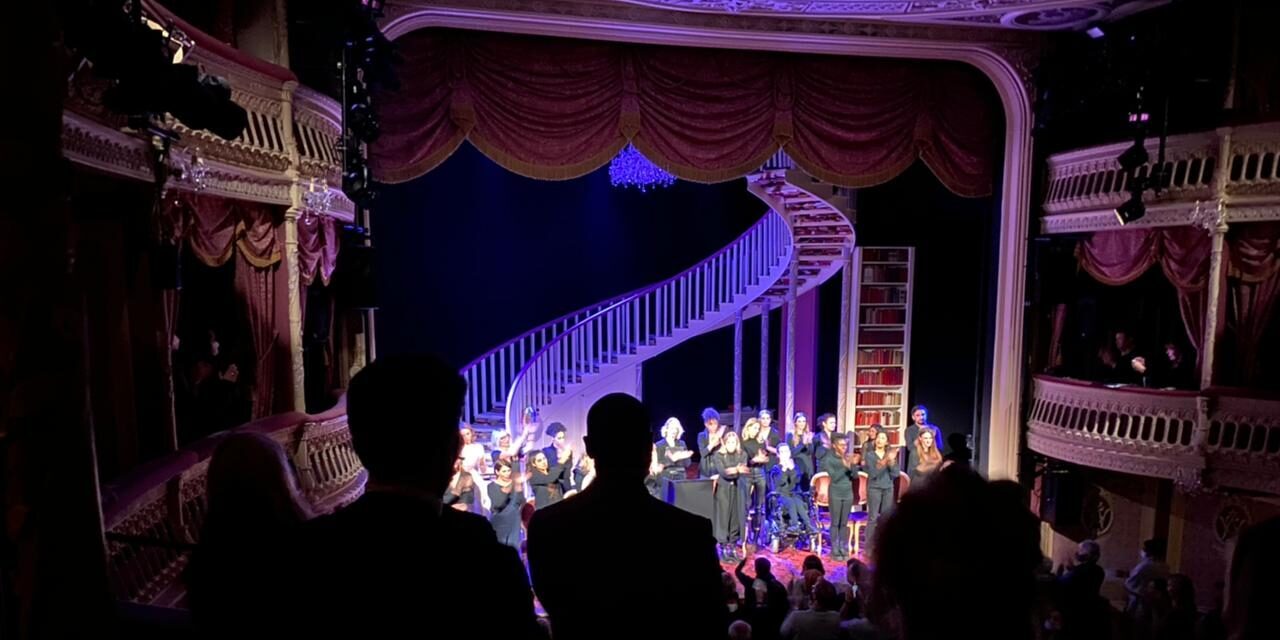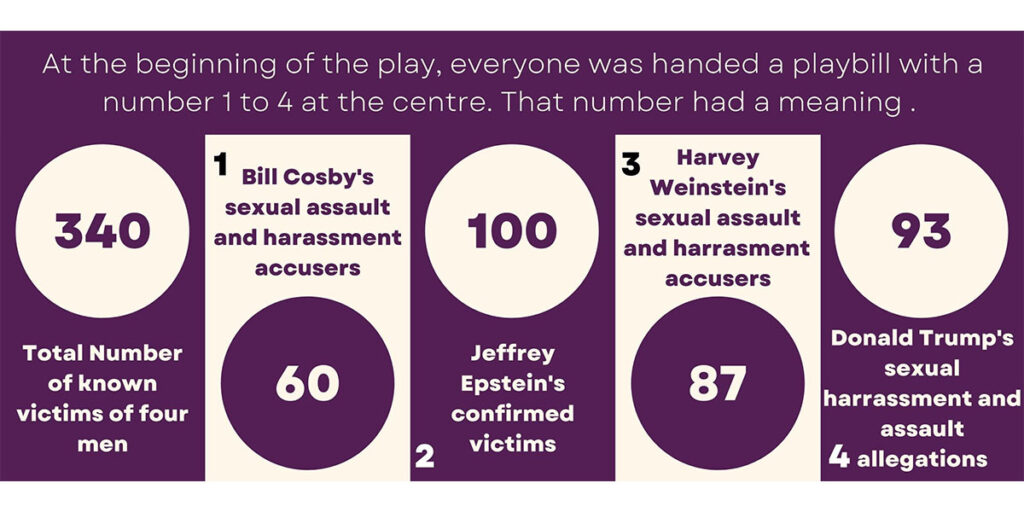

One in three women will be abused in their lifetime, and in times of crisis the numbers rise. Four hundred thousand more women in the UK have been victims of gender-based violence since the start of the pandemic. That is the point driven home by the play Punched.
In support of the UN’s global 16 Days of Activism against Gender-based Violence, the play was performed at the Criterion Theatre in London on December 6.
Consisting of 22 narratives based on survivors’ stories, Punched intended to raise awareness of gender-based violence. Sampson Soboye, an audience member, said: “Every performance was really strong and hit home. It needs to be highlighted to know that more needs to be done to change it.”
All the profits from the performance were donated to three charities: The Circle, Refuge, and Southall Black Sisters.
Rebecca Scroggs, one of the show’s actors in Punched, played the part of an anguished mother who could not protect her daughter from verbal and physical abuse. She was particularly excited to be a part of this project as it raised funds for a charity that she holds close to her heart.
“Southall Black Sisters are a really incredible and pioneering feminist activist community organization… they are one of the foundational black women of colour feminist spaces in London and in the country. So they’re really historical, and they’re still going today, which is amazing.”
Statistics show that two-million women in the UK experienced domestic violence in 2020, an increase of 25%. Charities focused on helping victims are more important than ever.
A woman who received help from one of these charities, Centre for Women’s Justice, wrote a poem about her experience during a lockdown:
You roll your eye and sigh –
I wish I could leave and fly
I know the signs, the weekly murder figures,
your fingers drive to pull the triggers,
Determined in lockdown, we’re more than a number –
I pray for those, who fear to slumber.
For those fearing Domestic Abuse – But the figures to me are of no use. I’m in it,
it’s happening to me, and witnessed by my kids.
You tell me I’m worthless and I hit my mental skids
Some of the actors in Punched have also been victims of gender-based violence. This was the case for Sophie Linfield, who explored her own experience, focused on receiving unwanted attention and being ridiculed simply for smiling.
Her story referred to her father telling her to smile at every stranger in the street. This got her into a toxic relationship with a previous partner, who wanted her to say he looked like Jesus when he was dressed up and covered in blood, pressuring her to kneel in his blood for his pleasure.
“That actually happened. When my partner said, ‘What do you think it looks like?’, I was like, ‘Colonel Gaddafi…’. You know what? No, he doesn’t look like Jesus. No, this is my line. Enough. The end”.
Sampson, who came to support a friend in the cast, said: “Men need to do better, we need equality on every level, and it needs to be done by any means necessary. I don’t know how we got here with men committing such atrocities and abuse on women. They all came from women. These behaviours are learned, so we’ve got to unlearn them and treat women better. Period.”
While the play focused primarily on women who suffered gender-based violence, it also touched upon how men and boys are abused but often feel they can’t come forward and talk about it.
Reports indicate that one in five women and one in 71 men in the United States have been raped in their lifetime.
Ashley, who attended the play with her mother, was shocked by just how common gender-based violence is.
“It affects you more personally, to realize it’s actually happening to a lot of people, or more people than what you actually realize. And it’s just more heartfelt. It makes you understand more about other people’s situations.”
Actress Saffron Burrows delivered the last story of the play, which was based on an excerpt from Andrea Dworkin’s book, Last Days at Hot Slit:
I want a twenty-four-hour truce during which there is no rape. I dare you to try it. I demand that you try it. I don’t mind begging you to try it. What else could you possibly be here to do? What else could this movement possibly mean? What else could matter so much? And on that day, that day of truce, that day when not one woman is raped, we will begin the real practice of equality, because we can’t begin it before that day. Before that day it means nothing because it is nothing: it is not real; it is not true. But on that day it becomes real. And then, instead of rape we will for the first time in our lives—both men and women—begin to experience freedom. If you have a conception of freedom that includes the existence of rape, you are wrong. You cannot change what you say you want to change. For myself, I want to experience just one day of real freedom before I die. I leave you here to do that for me and for the women whom you say you love.
Punched was one of the events during the 16 days of activism against gender-based violence, an annual international campaign that was started by activists at the inaugural Women’s Global Leadership Institute in 1991.
Written by Ananya Rao and Daniela Rivera Samayoa



